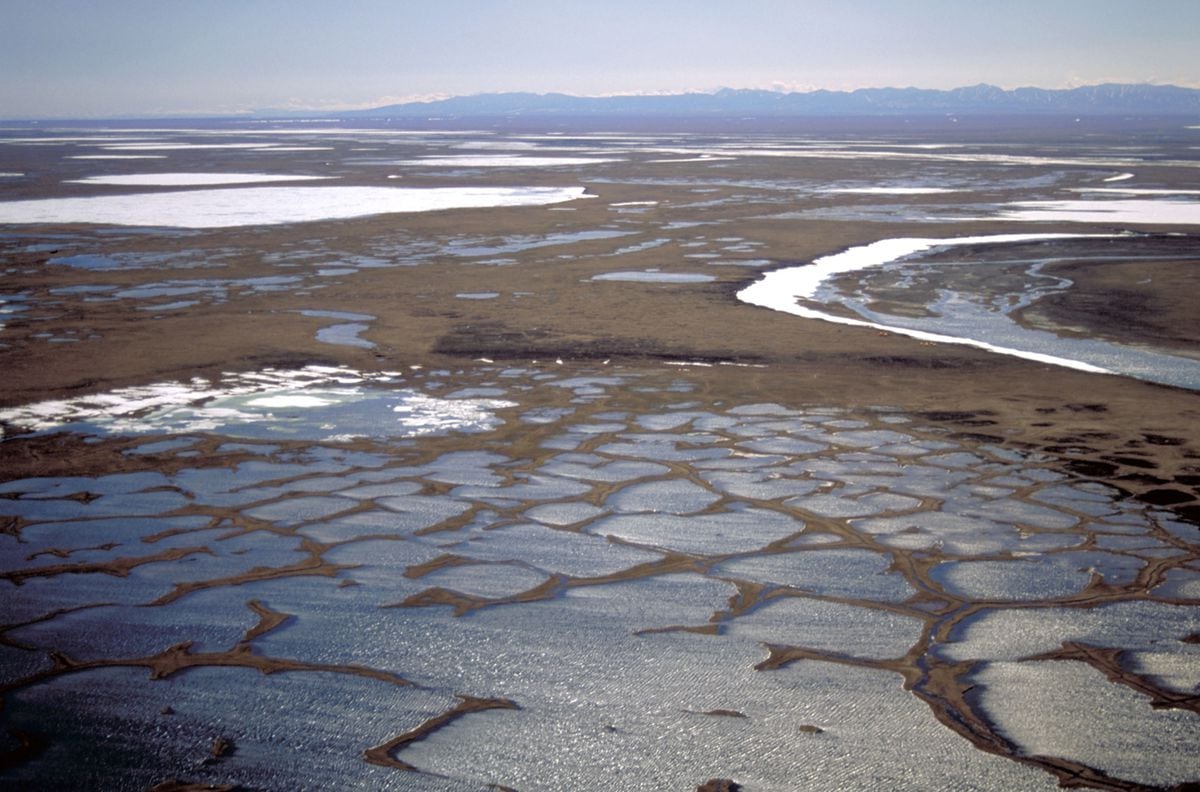U.S. Energy Interests and the Arctic National Wildlife Refuge Coastal Plain
"Canada is concerned about the potential transboundary impacts of oil and gas exploration and development planned for the Arctic National Wildlife Refuge Coastal Plain."
"Canada is particularly concerned that oil and gas exploration and development will negatively affect the long-term reproductive success of the Porcupine caribou herd."
Environment Canada to Alaska office, U.S. Bureau of Land Management
"Much of the wildlife that inhabits the ... refuge is shared with Canada. The conservation of these transboundary shared resources is very important to Indigenous groups."
"Yukon and Northwest Territories letter to the U.S.
"Potential impacts, particularly those relating to changes in calving distribution and calf survival, are expected to be more intense for the [Porcupine] herd because of their lack of previous exposure to oilfield development."
"These Canadian communities would be among the most likely to experience potential indirect impacts."
U.S. Bureau of Land Management, Alaska office, draft plan
 |
| In this undated file photo provided by the U.S. Fish and Wildlife Service, caribou from the Porcupine Caribou Herd migrate onto the coastal plain of the Arctic National Wildlife Refuge in northeast Alaska. (U.S. Fish and Wildlife Service/Associated Press) |
"He does keep me informed [Alaska counterpart]. He has a different mandate. I'm not sure it's the same relationship."Mr. Machtans represents Canada on an international committee tasked with the management of the Porcupine herd, mentioning his good relationship with his Alaskan counterpart. It's a new relationship in the sense that where at an earlier period the U.S. representative came from the U.S. Fish and Wildlife Service, the member at the present time comes from the U.S. Department of the Interior.
"We're [Canada] not in the inner circle. We're participating as members of the public."
Craig Machtans, Canadian Wildlife Service
As for the Porcupine herd in question, it represents one of the few remaining caribou populations in the North. What it also represents is a critical natural resource for regional Indigenous populations. The welfare of the caribou lies in coverage within one of four international agreements -- two of which cover polar bears and one relating to migratory birds -- all of which commit the United States to the area's preservation. Three diplomatic notes have been exchanged over the issue between Canada and the U.S.
Canada's concern is the content of the environmental study undertaken by the United States in its plans to open the large cross-border caribou herd to energy drilling irrespective of protection guaranteed under international agreements; most particularly the plan to open the calving grounds, threatening the stability of the herd through disruption and interference that international agreements guarantee will not occur.
 |
| Wild caribou roam the tundra in Nunavut on March 2009. Canada wants assurances from the U.S. about the content of the environmental study. The N.W.T. is asking that hearings be held in Canadian Indigenous communities that depend on the herd. (Nathan Denette/Canadian Press) |
According to international law professor Michael Byers, Canada Research Chair in Global Politics and International Law at University of British Columbia, "There's an obligation to consult that isn't being implemented right now", with the impression that the U.S. may already have broken a clause in the agreement committing both countries to mutual consultation before any final decision on anything that might affect the herd's future.
Despite which the U.S. administration is proceeding to draft plans to study the environmental impact of selling exploration leases on the Arctic National Wildlife Refuge Coastal Plain, potentially disrupting its rich ecology, home to the caribou. Adult caribou have been known to coexist with development; on the other hand, biological research has demonstrated they avoid any disturbances on their calving grounds.
 |
| Wild caribou are seen near the Meadowbank Gold Mine in Nunavut on Monday, March 23, 2009. The federal government, two territorial governments and several First Nations in Canada are expressing concerns to the U.S. over plans to open a massive cross-border caribou herd's calving ground to energy drilling, despite international agreements to protect it. (Nathan Denette/The Canadian Press) |
Canada is asking for assurances from its neighbour respecting the environmental study content while the North West Territories asks that hearings be held in Canadian Indigenous communities dependent on the herd. "We're not dealing with the same government we've been dealing with for the past 30 years", bemoaned Bobbi Jo Greenland Morgan, head of the Gwich'In Tribal council.
The public comment period extends to February 11 from its inception in December when the U.S. released its draft environmental impact study proposal for the lease sale. The Porcupine herd numbers 218,000 and growing, and the nearby Indigenous communities regard them as a source of food. "We probably have (caribou) at least once or twice a week (for meals)", explained Greenland Morgan. Canada's First Nations take roughly 85 percent of the annual harvest.
"This is a land grab, pure and simple, and the individuals responsible care little about impacts to wildlife or the damage they would be inflicting on Alaska Native people whose subsistence depends on the Arctic Refuge."
Adam Kolton, executive director, Alaska Wilderness League
 |
| The coastal plain of the Arctic National Wildlife Refuge. (Photo by U.S. Fish & Wildlife Service) |
Labels: Alaska, Arctic, Canada, Caribou, Environmental Protection, North West Territories, United States, Yukon


<< Home